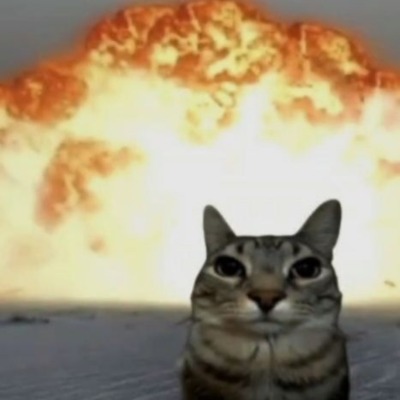Activity
Mon
Wed
Fri
Sun
Oct
Nov
Dec
Jan
Feb
Mar
Apr
May
Jun
Jul
Aug
Sep
What is this?
Less
More
Memberships
DSAT Hackers
3k members • Free
The Ivy Wizard Circle (Free)
169 members • Free
Rishab Academy
30.6k members • Free
Superior Students
15.4k members • Free
Guitar Skool
1.9k members • Free
4 contributions to The Ivy Wizard Circle (Free)
📌 Mock Personal Statement #1 (Based on Everyday Life)
In my last post, I invited you to answer four simple questions—about what you loved as a kid, how people describe you, your dream lives (if anything were possible), and one small moment that felt hard. No drama required. Just honest details from your own life. The goal? To show that even “ordinary” experiences can form the foundation of a powerful personal statement—if you know how to frame them. Shout-out to those of you who shared your replies—SO appreciated (you know who you are ☺️). Below is the first short mock narrative, based on one student’s reply. 🎯 What I pulled from student #1's answers: - Childhood interest: Drawing - Personality traits: Overthinker, hardworking, short-tempered - Dream job (one of several): Astronaut - Hard small moment: A teacher publicly commented on an exam (incl below) ❗Disclaimer: Everything beyond the details above is imagined—this isn’t a full essay nor is it a final draft. But that’s the point: I’ve filled in the gaps to show how your everyday experiences already hold the potential for a compelling story. - Direction I imagined: Astronomy major ___________________________________________ MOCK EXAMPLE #1 ✏️ Hook I don’t rehearse what I’ll say—I sketch it. Outlines, arrows, cause and effect. 🔍 Intro - I think visually. Not creatively, but structurally—like I need to see a moment to trust it. If something matters, I draw it out first: possibilities, breakdown points, how it might shift under pressure. - Most people can speak while thinking. I need to finish building the system first. 💥 Heart / Conflict - That didn’t always land well. I’ve been told to stop overcomplicating things, to “just be normal,” to stop talking like I’m building a blueprint. A teacher once held up my exam and joked it “weighed more than everyone else’s combined.” I laughed—but I rewrote every answer in my head that night, wondering what I should’ve left out. - Over time, I started second-guessing everything. Whether I was saying too much. Whether I was taking too long. Whether I should say anything at all. I wasn’t just editing my words—I was editing the way I think. And eventually, I started disappearing from the spaces where I used to feel most curious. - I disliked that version of myself. Hesitant. Less engaged. Frustrated. That frustration often turned into impatience—with others, and with myself. [Insert examples where that showed up—snapped at group dinner, became upset at family dinner, giving up on ideas before they were shared.]
📌 Joint Exercise: I'll Write a Personal Statement Based on YOUR Life.
***Update*** Loved all the replies here! I will not be taking any more requests on this post. The two (soon three) “Mock Personal Statement Narrative” posts I created should serve as great and sufficient examples! The posts are linked in the “One-stop-hub” (the pinned post at the top of this page). 🙏🏼💪🏼 ******* Many students worry they don’t have anything unique to say in their personal statement. “Nothing big or dramatic has happened to me.” “My life isn't interesting enough.” “I’m not sure what colleges want to hear.” But you don’t need a life-changing event to write a powerful essay. You just need a real story—something honest and specific to you. Because no one else has your exact mix of experiences, perspective, and personality, you already have something worth telling. 👉 If you answer the 4 questions below, I’ll write a short personal statement narrative based on your answers—just to show you how much story is already in your life. ❕You won’t be able to use it in your actual application (I’ll be filling in the blanks with my own imagination). My goal is to prove that everyone has the raw material for a powerful essay. 👉 Write your answers in the comments (no overthinking): 1️⃣ What were three things you genuinely loved doing as a kid? Not what you were told to do—what you chose. Think Pokémon, baking experiments, comic books, building things, drawing, anything. 2️⃣ What are three words your friends would use to describe you? Be honest. Not résumé words—actual personality traits. 3️⃣ What are two or three dream jobs or lives—if anything were possible? Not what’s expected. Just what feels exciting, interesting, or fulfilling to you. Examples: 🎨 “I’d design video game worlds and write the stories behind them.” 🌿 “I’d live on a quiet farm, grow my own food, and write a book.” 🔍 “I’d research ancient languages and explore lost civilizations.” 4️⃣ What’s one small thing that felt hard for you? Not dramatic—just something that felt frustrating, awkward, or confusing in the moment. Doesn’t need to be school-related. Write in 1 sentence (max 3 sentences) what happened.
2 likes • May 21
1. As a kid I loved drawing, I was interested in it and also tried drawing some. 2. Overthinker, Hardworking, short tempered (also, funny) 3. "I wanted to become an Astronaut, explore and unlock the secrets of my universe" "I wanna become a plastic surgeon, cuz I feel like I just have a good attachment with that job, I wanna help people, because making a person feel better about themself even through a surgery is not wrong" 4. Once my math sir mentioned in front of whole class that if he keeps my math exam's answer sheet on one side and stack the other students math exam's answer sheets on other side, both will have the same thickness He said this because I elaborated my answer a little too much or sometimes are methods of bring answer were confusing and long.
POLL: What Should I Cover Next? 🙋♀️
Happy Sunday everyone 🤍 I’ve shared a lot already—on essays, school lists, extracurriculars, financial aid, UK apps, and much more. (You can find the full list in the pinned "One-Stop Hub" post.) Now I'd love to hear from you guys again: 👉 What should I cover next? What feels unclear, overwhelming, or still unanswered? Vote in POLL! + write any additional details or requests in the comments 🙏
Poll
7 members have voted
💫 Welcome NEW STUDENTS! Start Here.
I’m so glad you’re here! This space is designed to give you access to high-quality admissions insights, tools, and structure — all for free. 🤍 Whether you’re just starting your journey or deep in the process, you’ll find valuable resources here to help you move forward. Here’s how to get started: ✅ Step 1: Introduce Yourself (to gain points & unlock level 2) 👋 Share your name and where you’re from in the “Introductions” tab! Connecting with others on the same path can make the process feel less overwhelming. ✅ Step 2: Explore the One-Stop Hub 📌 Check the pinned One-Stop Hub hub — it links to 70+ strategy posts on topics like essays, activities, transcripts, and more. ✅ Step 3: Watch the Free Module 📚 Head to the Classroom tab and start with Module 1 of the course. It covers the entire admissions process with insider tips, plus a timeline and checklist to help you stay on track. ________________________________________________ 🎓 Want Personalized Help? If you're applying soon and want 1:1 support, you're welcome to book a free strategy call to explore a potential fit with my Ivy Blueprint coaching program. It's a step-by-step system to build a standout application — with personalized feedback and coaching from me throughout the process. Thanks again for being here — and don’t be shy about posting to support one another or share progress! That’s what this space is for. 💜 / The Ivy Wizard
1-4 of 4
Active 2d ago
Joined Apr 13, 2025
INTJ
Teyvat


